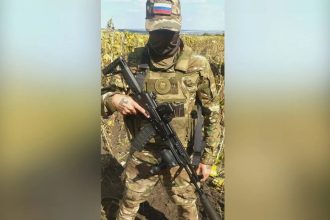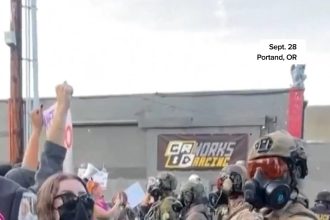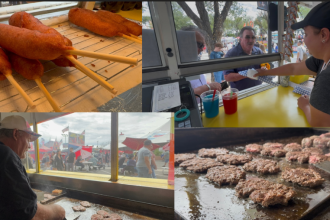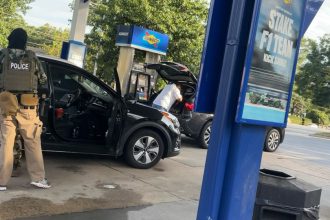Jihadists have set up roadblocks in the south and west of landlocked Mali near the borders with Senegal and Mauritania, where vital goods are imported daily.
Mali has battled a security crisis for over a decade, fuelled by violence by groups affiliated with Al-Qaeda and the Islamic State (IS) as well as local criminal gangs, which is compounded by a severe economic downturn.
Since early September, jihadists have imposed intermittent roadblocks on major routes leading to the capital, disrupting the movement of goods and people near Bamako and in the west.
Several witnesses told AFP that traffic had been brought to a standstill and was stretching back more than 10 kilometres (six miles) on a main highway near Bamako because of a blockade.
Mali’s junta has sought to play down the impact.
“If enemy movements are sometimes observed, they do not last more than 20 to 30 minutes. Therefore, we cannot talk about a blockade,” said Colonel-Major Souleymane Dembele, head of the army’s Directorate of Information and Public Relations (DIRPA), at a press conference on Monday.
Observers say the jihadists’ aim is to paralyse the economy, rather than to control territory.
They also want to show that the Malian army does not have the security situation under control, they say.
A private transport company, which has been targeted in attacks by the jihadists, has announced it is suspending its services “until further notice for security reasons”.
Several vehicles transporting fuel or consumer products coming from Senegal have also been targeted by the violence.
At least 10 buses have also been set on fire across the country by the jihadists, who first forced the passengers off the vehicles, according to an AFP count.
– ‘Restore order’ –
With no direct access to the sea, Mali imports most of the products it needs by road, such as hydrocarbons, fish, fruits and vegetables, from the port of Dakar, Mauritania or Ivory Coast.
Last weekend no tanker truck carrying fuel made the Dakar-to-Bamako trip for fear of reprisals from jihadists.
“We have decided to stop all our trucks for the time being. We are considering sending emissaries to the jihadists to discuss securing our activities,” an official from a Malian fuel company told AFP, speaking on condition of anonymity.
Jihadists also abducted six Senegalese drivers last weekend before later releasing them.
The Malian army, which initially played down the blockades, has announced it is deploying troops to “restore order” on highways in the west and south of the country.
“The situation is difficult. The army has sent reinforcements into the field, it’s true. But these reinforcements don’t stay long, while the jihadists remain on the ground,” an elected official in the western Kayes region told AFP.
“The army must change its mode of intervention,” the deputy added.
Junta chief General Assimi Goita on Tuesday chaired an extraordinary defence council meeting in Bamako.
No official statement was released afterwards, but a source close to the talks said the security situation had been discussed.
“Significant measures have been taken to ensure the safety of property and people,” the source said.
Mali has been ruled by a junta since back-to-back coups in 2020 and 2021.
Since then, the military rulers of the West African nation have turned away from traditional Western partners, especially former colonial power France, and strengthened ties with Russia and China.
AFP









